Finding Your Voice to Challenge Broken Systems
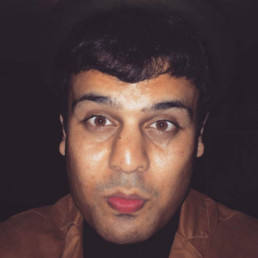
Written by Shuaib Khan
Shuaib is a teacher, sociologist, poet and podcaster.
On Saturday June 12th, I had the honour to join Hannah Wilson and Bennie Kara at the Diverse Educators forum for #DiverseEd. The theme I was focusing on was the notion of finding your voice.
After gathering my reflections and then almost losing my train of thought at the realisation one of my heroes, Dr Jill Berry was on the same panel as me, a really powerful conversation began to take place. The protected characteristics I wished to speak about were four-fold; being a British-Pakistani, Muslim educator. The journey that I have been on to reclaim a greater sense of self-pride in each element of my identity is still on-going. A lot of learning and unlearning comes with reflections. Ultimately, I am still on a journey.
After the introductions acknowledging the incredible educators that shared their experiences, the notion of what Nikesh Shukla refers to as the, “good immigrant” was my prominent theme. Before I began my journey, I believed firmly in the notion of being a “good immigrant” and the idea of assimilation and acceptance. Throughout my time at school and career as a teacher, as well as my lived experiences away from education, I was expected to “know my place.” There was always a tacit cultural tolerance that as a Muslim, and particularly as a Pakistani Muslim, raising my head too far above the parapet was frowned upon. Both society at large, and my own community seemed to foster this view. However, against the backdrop of the 2020 Black Lives Matter Movement, I began to realise that despite how much assimilation takes place and to whatever extent I suppressed by race, ethnicity or religion, the “good immigrant” was no longer the label for me.
Why suppress your own identity?
A lot of this is born out of fear. As noted, my identity is four-fold and if I add gender in there, possibly even five-fold. In public spaces I always felt the need to abbreviate my name. I was ‘SK’ to many and I never dared to correct someone for mispronouncing my name. The shame and even fragility of identity politics was ingrained into by society and its structures. When we do a Google search for British-Pakistanis, we are met with a barrage of crass stereotypes. The exact same can be said about Muslims and these derogatory views often made me feel ashamed of where I came from. The media played a huge role in all of this. Whenever a global event involving Muslims occurred, as a child I felt at fault and as an educator, in various establishments, I felt a real sense of shame. However, these are broken systems and this cognitive dissonance I was feeling needed to be challenged.
The turning point really began when I looked through photos of my late Grandfather. He was so fiercely proud of his Kashmiri roots but was unable to articulate his feelings in written to spoken word. Some 60 plus years since he arrived in this country, his vision of social mobility lives on through us. I found my voice to honour my grandfather. I found my voice to elevate the concerns of the community that I live and work in. Ultimately, with finding my voice has come the tremendous responsibility of occupying a platform to help others find their voice.
Hannah and Bennie enabled me to begin an important conversation. Many people out there are confused, disillusioned and apathetic about their identity. There is no magic wand approach. Yet, allowing others to speak on your behalf, without the lived experiences you have, this does your story no justice. For far too long I would wait my turn or relinquish my seat at the table because I felt like I had nothing worthy to say or offer. With organisations like DiverseED and Teacher Hug Radio amongst others, there is both a need and a desire for educators from all backgrounds to pull up a chair and begin to voice their concerns.
In summary #MyDiverseEdPledge was to carry on learning and unlearning and to carry on challenging broken systems. The systems the panellists spoke of; hetro-normativity, unconscious bias, racism and systemic silence, they all must be challenged. Thank you once again to Hannah and Bennie. Please join my journey and I also look forward to hearing all about yours.
You can watch Shuaib’s input at the #DiverseEd event here: https://youtu.be/wnanDncf6Xc
Coaching and Mentoring Diverse Leaders
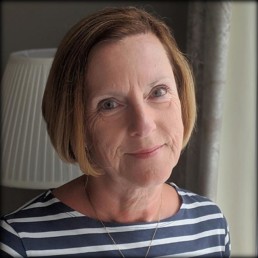
Written by Dr Jill Berry
Thirty years teaching across six different schools in the UK, state and independent, and was a head for the last ten. Has since completed a doctorate and written a book.
Since I finished headship in 2010, I’ve spent a fair amount of time working with aspiring and serving leaders at all levels, supporting and challenging them to step up, to be the best leaders they can be and to fulfil their personal and professional ambitions. It’s been a hugely satisfying and energising part of this ‘post-career’ phase of my life.
I was involved in and supportive of #WomenEd from the very beginning, and as initiatives like #BAMEd, #LGBTEd and #DisabilityEd have come on-stream, and as our awareness of the crucial importance of diversity, equity and inclusion has grown, I’ve been committed to supporting diverse educators, and this has involved my learning more – reading more, watching and listening more, in an attempt to raise my awareness of the perspectives and experiences of those whose lives may be quite different from my own. I’m committed to being an ally, and to encouraging all educators to be allies – and to exhorting all those with leadership responsibility to use any influence they have to empower others, especially those from under-represented groups.
We need strong leaders at all levels – Middle Leaders, Senior Leaders, Heads, Executive Heads – whether you’re leading a specific team, a school or a group of schools. And we need a diverse and inclusive workforce which reflects the communities we serve, and the world we live in, so there are role-models and high profile examples of what our pupils can achieve, and so that we make the most of the strengths and the range of talents of absolutely everyone.
So in terms of coaching, mentoring, supporting and developing leaders – whatever their background, their identity and their lived experience, these are three things I think are especially important.
- Leading is about getting the best from others, and to do that we need to ensure we can see the best in them, and that they see it themselves. Strong leaders can spot potential in those who don’t yet believe it themselves, so that’s my first point. Can you help those you lead to give themselves credit for what they have achieved and, crucially, what they could achieve in the future? Find the bright spots, and ensure they don’t undervalue themselves, or their potential. Show them you value what they are now, and what they are capable of becoming.
- Secondly, but clearly closely related to the first point, this is about building the most positive, mutually respectful and trusting relationships, and communicating. Really listening, being receptive, showing empathy, and trying very hard to understand each other’s point of view. To borrow Nancy Kline’s words: “seek to understand” rather than “seeking to convince”. When you’re working with others, focus on building bridges and not walls.
- And thirdly, finally, never lose a strong sense of hope and a sense of the possible. It’s ten years old, now, but back in the early days of my headship I read a book called ‘The Art of Possibility: Transforming Professional and Personal Life’ by Benjamin and Rosamund Zander, and I did FIND it transformative. We need to see what’s possible, for ourselves and for others, and to help them to see it, and to believe it too. We can be constrained by our fears, our anxiety about facing failure, or disappointment, our aversion to risk. If you are coaching, mentoring and developing diverse leaders, you need to have a clear sense of, and commitment to, what is possible. I recently supported a woman who was applying for an Assistant Principal role in her own school. She almost didn’t apply, and when I asked her why, she said, “I don’t like to fail.” No one likes to fail, but if we aren’t prepared to risk failure we won’t achieve success. What made a difference to her was her 13 year old son saying to her, “But, mum if you don’t apply, you HAVE failed…” And she applied. And it was a really rigorous, robust, challenging process, and she got the job.
So if you’re supporting diverse leaders, remember:
- Find the bright spots – and help them to see them too
- Connect and communicate
- Have hope and see what’s possible.
You can read more blogs by Jill here: https://jillberry102.blog/2021/06/12/coaching-and-mentoring-diverse-leaders/
You can watch Jill’s input at the #DiverseEd event here: https://youtu.be/wnanDncf6Xc
An Anti-Racist Approach to Physical Education
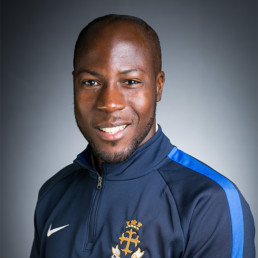
Written by Mo Jafar
I am currently Head of PE at an all boys school in East London. I have been appointed Subject Lead for PE at the Havering Teacher Training Partnership.
It can be difficult to recognise how your practice can have a detrimental effect on Black people if you are unaware of the issues Black people face. It could be argued that a lack of Black people in middle leader positions in Physical Education can have a profound effect on the experience young Black people have in PE and this lack of representation is one reason why organisations such as BAME PE are so important.
There are the classic stereotypes with regards to athleticism and power that are associated with Black people in sport and physical activity but what if you do not fit this model? If you are a Black girl in PE and not athletic what does PE offer you? Conversely, if you are athletic and Black how does this narrow your opportunities or change the way you are treated in PE?
These are important questions and unfortunately may never be addressed if we don’t bring them to the table. As stated by Clark (2020) “People in power are pragmatic when working on behalf of those that don’t have it”. Clark’s comments are from a paper he wrote last year based on applying a critical race theory pedagogy towards Physical Education.
Below I have highlighted some examples of how we might break through this pragmatism and actively adopt an anti-racist approach to Physical Education. I discussed this back in April on the PEPRN podcast by Dr Ash Casey which can be found here.
#1 The Changing Room
If you understand the black body you will know that moisturising is a religious art. How does this relate to PE I hear you say?
The changing room is rife for ridicule and if someone has forgotten to moisturise their legs then they are now a target for verbal abuse from peers.
If I noticed this happening over a number of weeks I would raise this with my designated safeguard lead as to me it’s not as simple as they have just forgotten. It might be the start of a thread that unravels later down the line.
As a Black person this type of issue is in my immediate attention but I’m not sure that it would be for others. Furthermore, the people in charge of designing and delivering safeguarding training are predominantly white and may not have this knowledge.
Including insights such as this in safeguarding training would not solve all the problems of racism but it may well be a start.
#2 Swimming and golf: limited opportunities
According to Swim England, the sport’s governing body, 95% of black adults and 80% of black children in England do not swim, and only 2% of regular swimmers are black. See Guardian article here and also the short documentary film by Ed Accura “Black’s Can’t Swim” on YouTube.
Having an acute awareness of the impact race has on an activity like swimming could encourage PE subject leads to be creative and ensure swimming for black pupils is a necessity and not a luxury. These statistics show there is a huge gap that PE can and should attempt to fill.
Another example came from a recent parents evening as one parent made me promise to offer opportunities for black boys in sports like golf.
Not all places feel accessible for black people or are experienced the same way as their white counterparts and for a long time I wouldn’t have felt it was my place to explore golf as a black man let alone a young black boy from East London.
We can change this by committing to offering young black people the opportunity to explore environments like golf and break down the idea that it is not their place to be.
Storytelling…As a tool for change
As PE teachers, the challenge now is to ensure that young black people (and all young people really) have the opportunity to experience a range of activities that historically and for a variety of reasons may never cross their radar.
It’s about knowing the people in front of you. Trying to understand all of their complexities as individuals, whilst appreciating their socio-cultural constraints and the role racism can play on a day to day basis.
Lastly, listening to the stories of Black people without judgement and acknowledging that you may not fully appreciate the world they experience could go a long way to enriching the PE experience. For a more in depth reading on this topic and other PE related posts please visit my blog site teaching2move.wordpress.com
References
Langston Clark (2020) Toward a critical race pedagogy of physical education, Physical Education and Sport Pedagogy, 25:4, 439-450, DOI: 10.1080/17408989.2020.1720633
My Journey as an Ally

Written by Ben Hobbis
Teacher, Middle Leader and DSL. Founder of EdConnect and StepUpEd Networks.
I have been on a real journey as an ally. I have been on a journey as a champion for diversity, equity and inclusion. I’m not sure where this passion comes from. I am a heterosexual, white, able bodied man. I know I’ve had it easy compared to my colleagues from different backgrounds within the protected characteristics. I’m not sure where my drive or passion for this comes from. I think it comes out of my moral compass of wanting to help create a more equal and equitable society. I know I can’t change the world, but I know if I don’t play a part I won’t be standing by and living my values.
When I first came into education, I thought inclusion meant ensuring special needs were catered for, that we pushed our gifted and talented children and that we ensured our looked after children and those with medical conditions were cared for. I was naive to think that this was inclusion.
However, I am very fortunate to attend (and soon graduate) from a university, an initial teacher education provider that strongly embodies, embeds and sequences the themes of diversity, equity and inclusion throughout the three years of my Bachelor of Arts in Primary Education. Just to give you some context this is how it was broken down for me:
- First Year – an overview of child development, barriers to learning including SEND, more able, economic deprivation, and English as an additional language.
- Second Year – a whole module dedicated to special educational needs, disabilities, and inclusion; opportunity to complete a placement in a special school.
- Third Year – current issues in education module including sessions on Race, LGBT, Gender, mental health and wellbeing; opportunity to research any area of inclusion and diversity in our educational research module; CPD sessions supporting these topics; in our core module gender issues in STEM is explored.
- All Years – the opportunity to arrange our own placements in special schools, children’s hospitals, and other settings. Opportunity to explore diversity, equity and inclusion on placements.
I’ve spoken to others on similar courses who get the equivalent of a week (if that) to these topics. In some cases, a day. And in some cases, some of these topics are not addressed. As a result, we are doing a disservice to our trainee teachers, our early career teachers, our communities and ultimately our children.
In our current issues module, we produced a training resource on two areas of the module. I chose LGBT and Race. I consider myself to be an ally. To be attuned to the issues (particularly over the last year) that have affected the world. However, I considered, how would I discuss this in the classroom? How would I handle this? And the answer was I didn’t know. Therefore, I felt it my duty to focus my assignment on this. Whilst now having completed the assignment, I am by no means the expert and by no means this being the last piece of CPD I do on the subject; I am pleased to have been supported and encouraged to educate myself further by an institution valuing DEI.
As an ally, I will never fully understand, but I can try to and do everything I can to support others. I have a duty for the children and communities I serve to do so.
Supporting Women into a Career in Banking
At Deutsche Bank, we believe that diverse teams perform better. Different perspectives, experiences and backgrounds of our employees support better decision making. Gender plays a key role in this. But many companies still have a long way to go to achieve gender balance. Statistics show that women are underrepresented at senior levels in organisations across all 20 sectors of the economy.
Deutsche Bank is on a mission to help change this. With a new target of having women in 35% of leadership roles by 2025, the bank wants to attract more female talent into banking to help improve gender balance and close the gender pay gap. ithin Deutsche Bank, dbGO is the gender inclusion network, run entirely by a team of volunteers who come together to support women across the bank. Their mission is to promote gender diversity to build better business and strengthen inclusion at the bank.
dbGO has created a film as part of an outreach initiative for schools targeting 13 to 18 year old female students. In collaboration with Diverse Educators and the bank’s youth engagement programme, Born to Be, the film will be distributed to schools across the UK to help demystify banking and open the eyes of female students to the opportunities available.
Hoping to inspire the future generation, six female Deutsche Bank employees with different personal and educational backgrounds have shared their career stories in the film. They share their journeys from education to their first job, what they wanted to be when they left school and how they ended up in banking – spoiler alert – it wasn’t on anyone’s grand plan! The women, who are at different seniority levels at the bank, tell the audience candidly, what it’s like to be a woman in banking, the mentoring and support they have received and the opportunities available to progress your career.
The film showcases the different types of roles available inside a bank – including roles that you wouldn’t typically expect. From trading, marketing, technology, legal to risk management, there really is something for everyone, as one participant reveals.
The film can be previewed at a webinar for school teachers with a live Q&A on Monday 5th July – book to join us here or to stay in touch about the campaign here. Participants will be able to hear more from Deutsche Bank at the session about why they have created the film and why they feel it is important to be shown to female students in particular as they start to make decisions that can affect their future careers.
In October, as part of International Day of the Girl, the film will be streamed to schools across the UK for students to learn more about banking careers and have the chance to ask questions to female Deutsche Bank employees about their careers and career journeys.
For more information about getting involved with this careers resource please contact: hannah@diverseeducators.co.uk
For more information follow:
Twitter @dbCitizenship @DeutscheBank
LinkedIn: Deutsche-Bank
Young People on the Margins – GRT Young People

Written by David Weston
Co-CEO of Teacher Development Trust; Chair DfE CPD group; author, campaigner and speaker.
Last month, an article in The Times argued that Irish Travellers should no longer be recognised as an ethnic group in the UK, and that Traveller families who attempt to maintain traditional customs should have to assimilate into mainstream British culture. Gypsies, Roma and Travellers are ethnic groups recognised by UK law, each with distinct languages, traditions and cultural practices. Denying that they are ethnic groups not only erases these communities’ rich histories but downplays the racism they face.
In this blog, I argue that support for Gypsy, Roma and Traveller (GRT) pupils must start with recognition of the racism that they experience day to day. I’ll explain why I believe the discrimination that GRT communities face is relevant to education, and then finish with three key things schools and colleges can do to ensure that pupils are able to spend their time in education learning, rather than dealing with the effects of racism.
Before I joined the team at the Centre for Education and Youth, I ran an education advocacy project for GRT families across England. The discrimination that families I worked alongside faced was shocking, and was a factor in most of the difficult situations families encountered. Sometimes this was explicit, like the young person who was excluded for lashing out after being called racial slurs for weeks, and sometimes this was built into systems, like the family who couldn’t access transport to school, despite living on a site cut off from the local school by a motorway.
More recently, my colleague Ellie Mulcahy and I co-authored a chapter focussing on Gypsy, Roma and Traveller pupils’ experiences for CfEY’s recently published book ‘Young People on the Margins’. In our chapter we point out that while many GRT pupils excel in education, there are barriers to success that GRT families have little control over.
Mainstream society is often unfriendly towards GRT people; attitudes towards nomadic families are usually hostile, and families who have settled in ‘bricks and mortar’ housing also face offensive stereotypes and social exclusion. In 2017, a YouGov/The Traveller Movement poll found that:
- Just a third (34%) of UK adults consider Gypsies and Travellers to be ethnic groups.
- Less than half (41%) of UK parents would be happy for their child to go to a playdate at the home of a child who is a Gypsy or a Traveller.
Children are affected by these attitudes in the education system too.
Many families avoid officially identifying as GRT in order to reduce the likelihood of discrimination, and the current categories (Gypsy/Roma or Irish Traveller) used by the DfE do not match how some families identify, so it’s hard to gain a full picture of Gypsy, Roma and Traveller pupils’ outcomes. However, we do know that:
- Attainment for Gypsy, Roma and Traveller pupils is lower than other groups. In 2019/20, the average Attainment 8 score for Gypsy/Roma pupils was 23, and for Traveller pupils it was 32, in comparison to an average of 50 across all pupils.
- Exclusion rates are higher for these groups of pupils, with 21.26% of Gypsy and Roma pupils and 14.63% of Traveller pupils receiving fixed-period exclusions in 2018/19, compared to 5.36% of all pupils.
For some people, these statistics confirm racist beliefs that there is an inherent educational deficit in GRT communities. This is something we strongly reject. Decades of research show that it is racism, prejudice and a lack of inclusion that cause poor outcomes for GRT pupils.
One of the largest barriers to educational success for GRT young people is other people’s attitudes. In a 2019 report from Friends, Families and Travellers, 86% of GRT young people said that bullying was the biggest challenge for them in school. It is no wonder that engaging in education can be difficult for students in a society where two thirds of adults deny their identity, and over a third of people in their local community would avoid spending time with them, just because of their ethnicity.
Broader problems such as lack of access to quality housing and poor health can make working with schools even harder for parents. When families’ experiences are understood and discrimination is tackled, more pupils are able to leave school with an education that adequately prepares them for the future. Listening to the stories of success we share in our book chapter, we can see that effective support relies on:
- Tackling racism and discrimination in schools and colleges
- Building strong relationships between staff and families
- Allowing flexibility in school and college systems and processes where possible.
These themes are echoed throughout our book, in chapters on the experiences of young people with SEND, who are care experienced and who are homeless. The approaches that make education more accessible for GRT pupils can help bring all young people in from the margins.
LGBT+ inclusive education helps all young people, whether they are LGBT+ or not
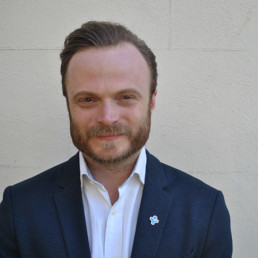
Written by Dominic Arnall
Chief Executive of Just Like Us, the LGBT+ young people's charity.
When Pride comes around, it can be easy to convince ourselves that so much has changed in terms of marriage and parental rights for adults, that it must be far easier growing up LGBT+ in 2021. Sadly, this is a common misconception and the research paints a much darker picture.
Just Like Us decided to commission independent research, conducted by Cibyl, to get a clear picture of how LGBT+ young people have been impacted, what is happening in terms of LGBT+ inclusive education, and how educators feel about implementing it.
When the pandemic began we expected that LGBT+ pupils may struggle more – perhaps stuck at home with unaccepting families, cut off from their usual support networks and struggling to find acceptance at school. What the independent research found was horrifying – LGBT+ young people are twice as likely to have contemplated suicide, and Black LGBT+ young people are three times more likely.
Our report, ‘Growing Up LGBT+’, surveyed almost 3,000 school pupils aged 11-18 (over 1,000 of whom were LGBT+) as well as more than 500 school staff. The results are very clear: LGBT+ young people are twice as likely to be worrying daily about their mental health and feeling lonely on a daily basis during lockdowns.
While the pandemic has of course been tough for everyone, including immense pressure on educators, it is devastating to see that LGBT+ young people are twice as likely to be struggling with their mental health and wellbeing on so many fronts – from depression to anxiety and panic attacks, there remains much work to be done.
LGBT+ school pupils are also twice as likely to have been bullied and just 21% told a teacher at school. Only 33% of LGBT+ pupils say there is a clear process for reporting anti-LGBT+ bullying in their school.
So what can we do? The good news is that the independent research found that pupils in schools where there is positive messaging about being LGBT+, pupils are less likely to have had suicidal thoughts and feelings – whether they are LGBT+ or not. The statistics are clear: all pupils benefit from a LGBT+ inclusion in schools.
74% of LGBT+ pupils who have never had positive messaging from their school about being LGBT+ have contemplated suicide but this drops to 65% when their school provides strong positive messaging about being LGBT+.
Non-LGBT+ pupils also benefit from LGBT+ inclusion in school – 33% of non-LGBT+ pupils who have never had positive messaging at school have contemplated suicide but this drops to 28% when there is strong positive messaging in their school.
A perhaps surprising finding from the independent research was also that the majority of all young people are very pro-trans. 84% of 11 to 18 year olds say they would proudly support a friend if they came out as transgender. 57% say they already have a friend who is trans. This really shows how important it is that we listen to young people’s voices and enable them to pave the way for positive change when it comes to LGBT+ equality.
Lastly, we are very concerned by the high proportion of LGBT+ educators who are facing challenges and fears about coming out at work and implementing LGBT+ inclusion in their schools. 40% of LGBT+ primary and secondary school staff are not out to their pupils.
Some might say that there’s no need to come out to pupils and there certainly should never be pressure on anyone to come out, but we are deeply worried about school staff who feel afraid to be themselves at work. No one should feel the need to hide who they are married to, who their families are or simply who they are in their jobs.
We also found that 31% of LGBT+ school staff say their colleagues or school board are a barrier to implementing LGBT+ inclusion in their school. The findings show there are still huge challenges that educators face in trying to bring about positive change and simply letting pupils know that: LGBT+ people exist and that’s OK.
As always, Just Like Us is here to support all educators – LGBT+ or not – with making schools safer and happier places for their pupils. You do not need to be an expert, it just takes a willingness to want to support LGBT+ young people who are so disproportionately struggling right now.
School Diversity Week is happening 21-25 June and it’s not too late to get involved. If you work in a primary school, secondary school or college, please sign up for free and we’ll send you a digital toolkit of resources for all key stages to help you celebrate.
Let’s create a world where LGBT+ young people can thrive.
Facing up to Privilege
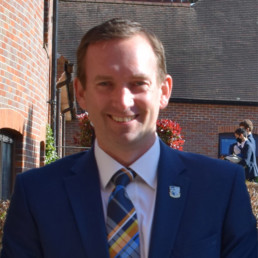
Written by Dan Colquhoun
Director of Sixth Form at Dr Challoner's Grammar School, 20/21 #BigLeadershipAdventure participant.
A personal view of confronting the advantages you’ve had and sharing this across the school community.
The past few weeks have been a time when I’ve been doing a huge amount of thinking and taking action on a lot of things relating to Diversity, Equity and Inclusion. The starting point was the brilliant session led by Hannah Wilson (@DiverseEd2020) and Adrian McLean (@Character_Guy) where we were all encouraged to actively engage in a range of deep-thinking tasks regarding what the key ideas meant to us as well as being encouraged to reflect on what our responses were to some challenging videos, pictures and ideas. What made this experience so powerful for me was the lack of judgement in the session alongside the feeling of psychological safety which enabled me to be honest with myself, and others, about my relative naivety with some of the issues raised.
The idea that particularly chimed with me was around Privilege. Having heard this bandied around previously I have to admit that I found it a word with many negative connotations – akin to spoilt, selfish, arrogant… I knew that I’d been fortunate in my upbringing: a loving, stable family; good school; various opportunities etc. but the idea of seeing myself as privileged didn’t sit well with me and I felt it was more suitable for those in the very highest echelons of wealth.
The video that we were shown of the race for $100 (here) where a range of statements were read out and if they applied to the individual (e.g. had a father figure in home, never worried where the next meal will come from etc.) they get to take two paces forward. After 10 statements the difference in starting position is massive, but as the video states: ‘where you are has nothing to do with anything you’ve done’.
I have watched this a number of times now, and it still causes a very emotional reaction in me. How can I not have realised just how fortunate – how PRIVILEGED – I’ve been all of these years? Having now shared this video with our SLT, my Sixth Form Team as well as with our team of Senior School Officials in both Y12 and Y13, it has been fascinating to listen to their responses and the different aspects that they pick up on. The extra large steps that people are trying to take to get any little additional advantage, the strong link between race and starting position, the importance for those at the front to turn around otherwise they don’t realise quite how far ahead they are of everyone else, and the incredible, powerful, way that many of those at the back still give their absolute best in the race. It gets me every time.
So, do students leave our school realising the extent of their privilege?
At the moment the answer for the vast majority would have to be a resounding no. They attend a selective school in an affluent town in the commuter belt and this bubble that they live in means that they are not exposed to the full breadth of society. They often end up comparing themselves to their, similarly privileged, peers or others in independent schools (the few who are “ahead” of them in the race of privilege) and actually convincing themselves that they’re relatively disadvantaged. Finding ways to encourage them to see themselves within the bigger picture, to take a more global view, is going to be really important.
For some students this can come from when they head to university and mix with a wider, more diverse, group of people. At reunion events it is a regular comment: “I just thought that all schools were like ours until I started speaking to friends at university.” This leads to increased gratitude and awareness of their privilege from attending our school, however it doesn’t suggest that they really understand the depth of privilege from across all aspects of their life that has put them in the position that they are in.
To me it is so powerful to think of what they could achieve if they do have this awareness of their privilege and the moral duty that comes with it to use it to help others who haven’t had the same level of advantage. Equity vs Equality.
So what has happened since this experience of seeing with fresh eyes?
Back in my school I initially shared my key learnings with my SLT colleagues. This led to some really fruitful discussions and we now have DEI as one of our two key school targets for the coming academic year. Sharing thoughts with a number of different teams of staff and students has been amazing and the quality of engagement and contributions at all of these has been so brilliant to see. It is as though everyone is desperate to talk about it, but often doesn’t feel confident enough to always say what they want to. To ask the questions. To simply say they don’t know. By sharing my vulnerability and recent journey has had a very positive impact on the atmosphere in these sessions and allowed people to feel safe and talk openly. ‘Getting comfortable with being uncomfortable.’
I have also had a number of discussions with my team in the Sixth Form about what this all means to us, and what are the key aspects for us to work on with the students. We have also started to make things more visible to students with: posters from Bold Voices around the school; names and email addresses of who to contact if a student has any concerns; policies more visible; a standing agenda item in our meetings; sharing of interesting articles and webinars.
What does the future hold?
We have arranged sessions in a couple of weeks’ time (once Y13s have got their final assessments out of the way), where all interested students are invited into school for two hours, to share their feelings regarding Sexual Harassment, Sexual Abuse and Consent. We’re initially going to have these meetings split by gender to encourage open sharing of what is the reality of things at the moment. We will then see what people are happy to share more widely and capture the honest views of our Sixth Form students as well as thoughts on how we could proceed. Involving the whole school community, and particularly the students, is going to be key in shaping how we move forwards.
Getting all staff on board is vital and we have very successfully embedded positive attitudes towards Mental Health across the school having focussed on working with staff first and then students. I see this as an important path to follow with DEI too: every teacher needs to have the space to engage with the issues themselves before we can expect them to start working with students. We cannot allow any teacher to remain unconsciously incompetent. ‘Doing the inner work before you do the outer work.’
As a school we pride ourselves in sending out well-rounded students prepared to make a positive impact in the world. We must do everything we can to ensure that this encompasses awareness of their individual level of privilege and this is going to be a key aspect for us to get right for the future. I’m excited for what lies ahead!
Antiracism through Opportunity
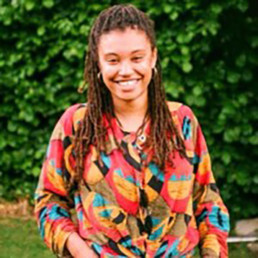
Written by Cassie Cramer
Real World Learning Programme Manager at School 21 in Newham, London
How School 21 approaches work experience through and antiracist lens
School 21 is a place that has always strived to provide opportunities for our diverse young people to succeed in the 21st century. Recently, it has been made clear that success by our definition requires taking actions to identify and act against racial inequality both inside and outside the classroom. In 2020, School 21 has made a concerted effort to promote equity, inclusion and diversity within our community. Through various initiatives, such as diversifying our curriculum, creating more inclusive recruitment processes, and the formation of an antiracism working group, we are doing what we can to create a thoroughly antiracist organisation. There are, however, some things School 21 has done for some time that in unexpected ways contribute to our newly articulated antiracist agenda. One of these things is the development and implementation of the Real World Learning Programme.
What is Real World Learning?
The Real World Learning Programme was started in 2015 as a reimagining of work experience. It provides both students and their host workplace with something that is more meaningful and authentic than traditional work experience. At School 21 all Year 10 and Year 12 students take part in 1-2 projects with a partner organisation for 12-17 weeks. Students spend one afternoon each week out of the classroom and in the real world, where they work in teams to solve problems for their host organization. Students take the skills they have developed through project-based learning in the classroom, and apply them to real life projects in the working world. Students come away with a tangible product, a variety of transferable skills, and a totally novel experience which can significantly impact their futures. Real World Learning at School 21 brings students and the professional world together in a meaningful way and raises aspirations of students, while widening the perspectives of employers.
An opportunity to build a network
Some students work with carpenters to make new chairs for our school. Others work with international financial institutions. From local primary schools to world renowned publishing houses, we work hard to provide students access to opportunities that are too often reserved for those with connections and privilege. The phrase, ‘It’s not what you know, but who you know’ has continually been proven true on small scales and large. Work experience, something that for many is relatively inconsequential, has the potential to create the opportunity for students to start a professional network. This provides marginalised young people the chance at the kind of network their more privileged peers may have through parents, private institutions or their school’s alumni. By simply giving students the chance to show their best selves, through an elongated and scaffolded work experience programme, we are in a very small way working to create a more equitable society.
Exposure goes both ways
The Real World Learning Programme strives to get our students out of the bubbles they are so accustomed to. It exposes them to careers, locations and individuals that they may never come across in their day to day lives. It is not, however, only the students whose boundaries are pushed. The bubbles that many corporations and organisations function in looks very different from our students’ bubbles, but they are bubbles nonetheless. By putting our students in white dominated spaces – like in the sky scrapers of Canary Wharf – you are not only raising their aspirations, but you are demonstrating what young, diverse people of colour from East London are capable of. The exposure that the programme offers, especially as it is over a significant period of time, works to confront implicit bias and racist stereotypes. It puts young ethnically diverse people in boardrooms and demands their thoughts are considered.
Many projects that our students have worked on explicitly seek to rectify racism in the workplace. We’ve had students working at the Ministry of Justice create a training video which sought to help employees identify and avoid implicit bias based on race and gender. Students have worked with the Metropolitan Police to create campaigns which aimed to ease tensions between young East Londoners and police officers who work in the area. HSBC has had our students reimagine their hiring processes, so that they are more attractive employers to a diverse pool of candidates. It is not only students who work on projects about diversity and inclusion in the workplace who contribute through Real World Learning to School 21’s antiracist agenda. Every student who completes the programme and can therefore see their future selves in positions of influence is a tiny rebellion against the white hegemonic structures that underlie so many industries.
Representation matters
Committing a total of 8.5 entire school days to work experience is not the only way to create a careers programme that is actively anti-racist. It starts with not limiting your students, and reflecting on your assumption of their capabilities. I’ve seen some of our most vulnerable students who struggle in a classroom environment do their work when they put on a suit and play the role of consultant. If they never get the chance to be in these scenarios, how will they know they deserve to be? Representation is also something that is so important in careers education. If students don’t have the time to form relationships with professionals, it is vital that they are exposed to professionals that they can relate to. If every solicitor or CEO you meet is white, it is hard not to jump to conclusions about the prerequisites for these sorts of careers. Sometimes interactions with professionals must be fleeting, but for them to be impactful there has to be some common ground and it is always worth the effort to find someone who can relate to students.
Looking at the big picture
The Real World Learning Programme is by no means perfect. Sometimes students get fired, employers end up frustrated and projects don’t get completed. The quality of projects are not always up to our standards, and students sometimes misbehave. These things seem insignificant though, if you think of the bigger picture. We unfortunately live in a society that is segregated. Race, class, wealth and other factors limit the movement of individuals in their professional lives. Work experience can be seen as an exchange of sorts, exposing students to foreign situations, and exposing employers to the talent, spark and ingenuity that is being nurtured in a place like a state school in Stratford, East London. We believe our students are capable of making real and lasting contributions to the companies they work with, and while they don’t always complete their brief, or win their pitch, they do always leave a mark on those they interact with.
We can, and should, think about work experience as an opportunity for students to experience the real world and gain valuable skills. This does not, however, have to be the sole purpose of it. By providing students with opportunities for their voices to be heard, and their opinions valued, the Real World Learning Programme is creating space for marginalised individuals to make their mark on institutions that have ignored them for too long. It allows students to see themselves as equals in a room of professionals who often have had a very different lived experience. Giving these opportunities to students, and supporting them to use their agency is an antiracist practice that more schools should be empowered to provide. I’d urge any enrichment manager or careers leader in a school to think about what opportunities the most privileged students have access to, and how this allows them to develop skills for the real world. It is absolutely possible that all students receive opportunities to develop those same skills while simultaneously raising aspirations and disproving racist assumptions. Work experience can be a vessel through which we don’t just acknowledge racial inequality, but actively empower our students to dismantle it from the inside.
Prepare students for the world, and the world for our students
Work experience is many things. It can be a taste of independence, a rude awakening, a rite of passage or a formative experience. At School 21, we also see it as a chance to promote equity and spark change that reaches far beyond our school walls. Through Real World Learning students can push their own agendas, and let organisations big and small know what matters to them. They can pave the way for others from similar backgrounds. They can show professionals that young people of colour can disrupt the status quo and contribute just as much as those who society privileges over them. They can see themselves as someone important, capable and respectable in a world that paints them as the opposite. If we see work experience as a chance to prepare our students for the working world, but also prepare the world for our students, we can do our part as educators to dismantle the systemic racism that is still rampant in workplaces and in society.
My Journey to Belonging

Written by Meirion Lewis
Assistant Principal at UAE Southbank, South London and #BigLeadershipAdventure participant.
A few weeks ago I was participating in a fantastic Diversity, Equity and Inclusion (DEI) session by Adrian McLean (@character_guy) and Hannah Wilson (@ethical_leader) as part of the Big Leadership Adventure by @_bigeducation and we were challenged to write a blog. I have to admit to having become an avid blog reader over the past few years due to delving into the twittersphere but have always found the thought of writing one myself as an utterly terrifying experience. Who on earth would want to read my inane ramblings when there are so many incisive, phenomenal musers and blog authors currently out there. I definitely don’t feel like I belong in that sphere but the challenge was there and began worming its way into my brain. The biggest issue was what on earth I would write my first blog on. I have been reading Brene Brown’s ‘Braving the Wilderness’ recently and this idea of ‘belonging’, what it means to belong and the importance (or not) of belonging to something really resonated with me and chimed with my growing discomfort of seeing Edutwitter becoming more and more tribal. Massive thanks also has to go to my wonderful colleague and friend Hannah Dalton (@DoddsyInit) for her feedback and suggestion that I turn this blog into a trilogy (what have I let myself in for). So here goes nothing…
What does it mean to ‘belong’?
The Oxford English dictionary defines belonging as ‘the feeling of being comfortable and happy in a particular situation or with a particular group of people’. Sounds simple enough but how easy is it to feel like you truly belong somewhere and is it actually that important in the grand scheme of things?
To put this in some sort of personal context, I have suffered from massive ‘imposter syndrome’ for most of my teaching career and reflecting back on the past 20 odd years, it has definitely affected my sense of belonging, and as a result, my self esteem and ability to do my job at times. I didn’t exactly fall into teaching but it was never part of my career plans growing up. My dad was a Deputy Head and, whilst he loved his job, I could see how hard he worked and thought it looked like way too much effort for me. However, a girl I fancied in Uni was working in a youth club on the weekends so I ended up doing the same. Whilst the relationship was short lived, the desire to combine my love of Science along with the real buzz I got from working with the teenagers from the estates of Cardiff propelled me into applying for a PGCE (plus, if you had seen how bad I was at Lab work, it was obvious that a career in Biochemical research was never going to work!). I was pretty driven in the early days to both do the best by my students and move up the responsibility ladder and I definitely felt like I belonged, both in the profession and in the different schools I worked in.
After 8 years, I found myself as Head of Science in a great school and that’s when the imposter syndrome hit me, and hit me hard. I constantly questioned myself and whether I belonged in the role and in such a successful school. It even got to the point where I was questioning whether I belonged in the teaching profession at all. Looking back now with a (relatively) dispassionate eye, I think I was a pretty decent HoD. Results improved (from a fairly high starting point), retention into 6th Form classes increased significantly but could I have done better – most definitely. I could, and should, have learnt more from my mistakes, been a more reflective leader and listened to my staff more but I was so preoccupied with the issue of personal belonging and all the baggage that went with it that it clouded my ability to think clearly at times.
This feeling of not belonging in leadership dogged me for the next decade and it is not until the last year or so that I have started to shake it off (I suspect it will never completely disappear and that is probably not a bad thing as it provides a critical lens to be self reflective through). What changed to allow me to begin to move on? In its simplest form, I rediscovered my values and began to truly understand what sort of leader I wanted to be. This has not been easy and I can’t honestly say I made a conscious decision to go on this journey but it has happened nonetheless. It comes down to a combination of factors but the main ones are:
- I stumbled upon a school that is full of people that share my values (although I didn’t realise this when I started).
- I have colleagues that have shown me, by their actions, the importance of developing yourself as a leader and that it is ok, normal even, not to have the answers to everything but that you should be striving to constantly reflect and improve. They have shown me that being clear about what you believe in and living your values out in your everyday life are probably the most important things you can do. This may sound obvious to you, dear reader, but it hasn’t always been to me.
- I have found a group of people through ‘Big Education’ that I admire beyond words and am privileged to be able to learn and grow with them over our two year Leadership Adventure and, hopefully, beyond. I definitely still feel imposter syndrome when I am with them!
Brene Brown talks about belonging in the following way: ‘belonging is about being accepted for you… if I get to be me, I belong. If I have to be like you then I fit in’. That encapsulates where I am in my journey perfectly – I now get to be me, so I belong.
Part 2 of this blog series will look at the pitfalls of belonging and Part 3 will discuss why it is important for schools to foster a sense of belonging amongst their students and how they can go about doing this. I need to actually get around to writing them now!


